Go back
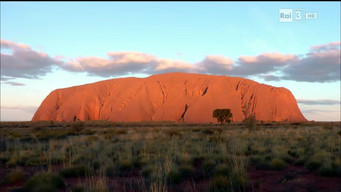
Australia. Il continente delle sfide
Episode number: 1
Overview: An extraordinary journey by Alberto Angela to the continent furthest from us and perhaps the least known: Australia. Why was it discovered just 250 years ago? Why are there animals very different from other continents? What is Ayers Rock, the enormous rock block located in the center of the continent, and why is it considered a sacred place by Aboriginal people? Is it true that Giuseppe Garibaldi was in Australia? These are some of the many curiosities that the episode answers. Just two and a half centuries ago, until James Cook's expedition, Australia was not even suspected of existence; and even today its interior - the so-called outback - behind the large coastal cities remains almost completely uninhabited and largely unexplored. There are many wonders and surprises that Ulysses reserves for us on this journey to discover the lesser-known aspects of Australia.
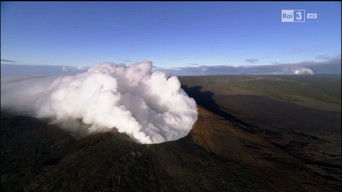
Le montagne di fuoco
Episode number: 2
Overview: Alberto Angela tells us the story of the mountains of fire, venerated, loved, hated, and always feared. In this episode of "Ulisse", a spectacular journey takes us to one of the most fascinating places on the planet: the Hawaiian Islands, in turn the symbol of the incredible creative force of the mountains of fire. We go to the point where the lava of Kilauea, one of the most famous and powerful volcanoes on the planet, we enter the sea and go underwater to understand what happens in the embrace between ocean and red-hot lava.
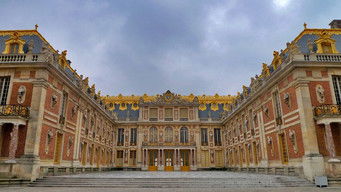
Versailles. Una giornata da re
Episode number: 3
Overview: In this fascinating episode of Ulisse il piacere della scoperta, Alberto Angela offers viewers a truly special journey to the most prestigious palace in Europe, Versailles, during the reign of Louis XV. Sixty long years which constituted the peak of its splendor for the palace, before everything faded with Louis XVI and the French Revolution. What did it mean to be king in that period? How did people live at court? What were your daily habits? This documentary allows us to retrace the fashions of the time, to sit at the table with the king, to let our minds wander among the entertainment that took place in the palace, and to relive the fiery, yet public, royal loves. Louis XV found himself king while still a child, at just 5 years old. Unlike the king who preceded him, the famous Sun King Louis XIV, and the one who will succeed him (Louis XVI); Louis XV was not the protagonist of exceptional events.
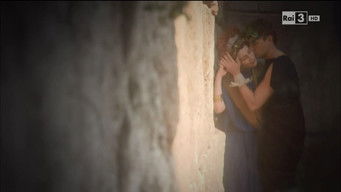
Roma Amor. Passione nell'antica Roma
Episode number: 4
Overview: With Alberto Angela we take a journey into a disappeared world that is talked about a lot but little is known: love in the times of the ancient Romans. There are many curiosities to satisfy: how did people kiss 2000 years ago in the alleys of ancient Rome? How did we love 2000 years ago in these houses? Did you bring roses to your girlfriend? What tricks did a woman use to seduce a man? And to cheat on her husband? How did you get married? Were wedding rings used? Is it true that it was easy to get divorced? And then what were the taboos under the covers?
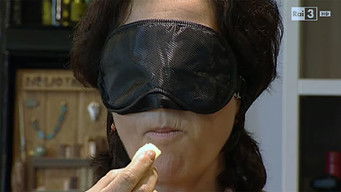
I sensi della vita
Episode number: 5
Overview: In this episode we discover our five senses: we try to understand how they work, what things they can reveal to us and what are beyond their reach, and how they are different from those of some animals. In fact, our senses give us a portrait of the world that would be profoundly different if, for example, we explored it with the senses of another species. We also discover how touch and pain perception work and how this changes depending on the area of the body that is involved.

I cicli della vita
Episode number: 6
Overview: A journey through rites and ceremonies that regulate humanity, Ulysses recounts the moments that change us: rites, parties, and ceremonies. In any type of society, ancient or modern, Western or very distant from us, people have developed rituals, sacred or profane, which underline and regulate the most significant moments of life, from birth to entry into the world of adults, anthropologists call them, Rites of Passage.
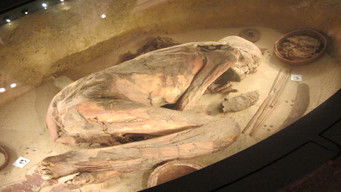
I tesori del Museo Egizio di Torino (seconda versione)
Episode number: 7
Overview: Alberto Angela visits the Egyptian Museum in Turin and talks to us about the ancient Egyptian civilization through the precious finds contained in the museum. Exploring the rooms you go through the entire history of ancient Egypt and you can see great treasures, mummies and ancient statues. The Egyptian Museum of Turin, after that of Cairo, is the most important museum in the world dedicated to this civilization.
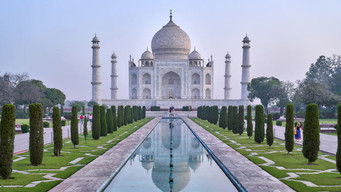
L'India delle meraviglie (seconda versione)
Episode number: 8
Overview: An extraordinary journey through the places, colors and sounds of India's wonders. Together with Alberto Angela, we visit mausoleums, temples and princely residences of Mughals and Maharajahs. We cross an immense country, with more than a billion inhabitants and at least 25 languages. India is the country of the most ancient religions, of strong smells, of penetrating glances, and of fabulous riches but also of poverty. A country with an ancient history that has left us sites, temples and monuments that are among the most spectacular on our planet. In Agra we visit the Taj Mahal, the funeral monument built by the Great Mogul for his beloved bride who died young. We discover that the construction of the symbol of India coincided with a period of extraordinary wealth and tolerance which saw the flourishing of arts and culture, an era comparable, in a certain sense, to our Renaissance. We move to Rajahastan, the land of the maharajas, where we visit the fabulous colorful cities.
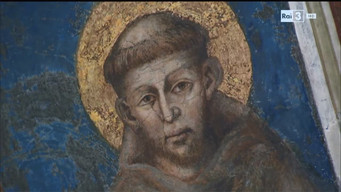
Francesco d'Assisi. Le sorprese della sua vita e del suo tempo
Episode number: 9
Overview: The cameras of "Ulisse" guide us in the footsteps of Francis of Assisi. Let's discover the traditional saint, admirably depicted in Giotto's cycle in the basilica of Assisi. But we also try to reveal the more human side of Francesco, a man with the same passions as him, even heated ones. We know his enemies and his friends, such as Santa Chiara, also from Assisi, founder of the female equivalent of the Franciscan order.
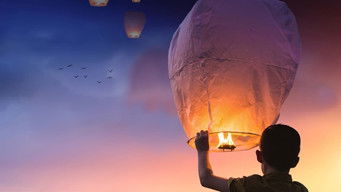
Le meraviglie del cielo
Episode number: 10
Overview: Have you ever thought that when we breathe a little bit of heaven enters each of us? But what exactly is the sky? Is it possible to be struck by lightning out of the blue? What exactly is a rainbow made of? We discover all this with a journey into the 100 kilometers of air above our heads; this is by definition the sky. In the episode we try to explain what a cloud is and why the sky is blue during the day and then suddenly becomes transparent at night and allows us to see the stars that cannot be seen during the day. Let's meet the creatures that live there. It's not just birds that populate the sky. In fact, some plants have learned to exploit the air when they drop their seeds, giving them real wings. In this case we could say that the plants, or rather a part of them, have learned to fly. We observe the tallest man-made buildings to grasp the secrets of their stability both in the case of ancient buildings and modern skyscrapers.
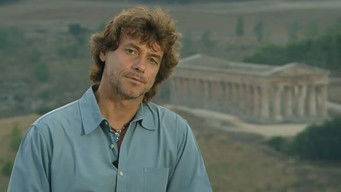
Splendori di Sicilia
Episode number: 11
Overview: Have you ever thought that when we breathe a little bit of heaven enters each of us? But what exactly is the sky? Is it possible to be struck by lightning out of the blue? What exactly is a rainbow made of? We discover all this with a journey into the 100 kilometers of air above our heads; this is by definition the sky. In the episode we try to explain what a cloud is and why the sky is blue during the day and then suddenly becomes transparent at night and allows us to see the stars that cannot be seen during the day. From the top of Etna to the sea depths of the Egadi islands: Alberto Angela among the treasures of Sicily. A journey around the island between myth and history, from Homeric legends to the various dominations of the Greeks, Romans and Arabs who left splendid archaeological traces such as the Valley of the Temples of Agrigento, the many Greek theaters such as that of the magnificent site of Segesta, up to the mosaics of Piazza Armerina.
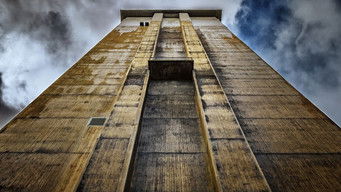
La torre di Babele
Episode number: 12
Overview: A trip to Mesopotamia, the land between the Tigre and the Euphrates, corresponding more or less to present-day Iraq: this is what Alberto Angela offers us. The oldest civilization in history was born here, older than the Egyptian one. We are in the land of the Sumerians, the Akkadians, then the Assyrians and the Babylonians. There where the mythical city of Babylon stood, which featured constructions admired throughout the ancient world: the hanging gardens, the walls and above all the tower, the Tower of Babel. A city about which much has been said: the gardens were among the seven wonders of the ancient world. The Jews were deported there after the conquest of Jerusalem by the Babylonian king Nebuchadnezzar II. And it is during Babylonian slavery that the myth of the sprawling, dangerous city, the kingdom of every perversion, was born. For the Jews, Babylon is synonymous with persecution and slavery.
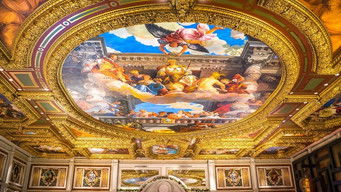
La cappella Sistina e i suoi segreti
Episode number: 13
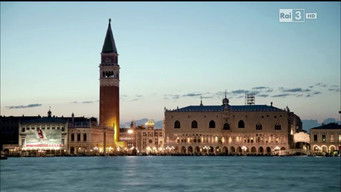
Venezia. Viaggio tra i tesori del Canal Grande (seconda versione)
Episode number: 14
Overview: A small but fascinating journey: just four kilometers of the Grand Canal to discover the many extraordinary buildings that overlook this waterway and make Venice a unique city in the world. Behind every door, under every dome, many stories are hidden. The journey begins from Piazza San Marco: on one side the Basilica, on the other Palazzo Ducale, almost symbolizing the balance between religious and political power on which the greatness of the city was based. Another pillar is economic power: Venice has been at the center of maritime trade for centuries. This resulted in wealth, luxury but also the continuous risk of epidemics. By visiting some of the most illustrious palaces, you will see how the patrician families lived, how they dressed, why they wore wigs, why they used fans and what meanings the moles that women and men glued to their faces had.
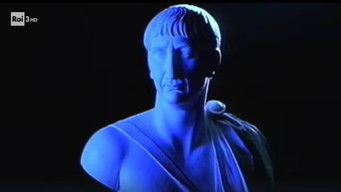
Il racconto segreto della colonna traiana (seconda versione)
Episode number: 15
Overview: Alberto Angela takes us on a journey to the borders of the Roman Empire to narrate the moment in which the latter reached the peak of power and expansion with the conquest of Dacia. An exciting story, which has changed the destiny of millions of people over the centuries, pointing the compass towards a specific era: that of Emperor Traiano, of whom this year marks the anniversary of his death which occurred 1900 years ago.
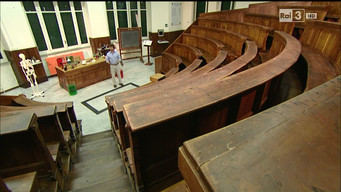
Viaggio insolito nel corpo umano (seconda versione)
Episode number: 16
Overview: There is nothing more familiar, and at the same time more mysterious, than this perfect machine that can do things that no machine invented by man would ever be able to do. Not only thanks to his refined senses, but even more through his incredible ability to process thoughts, ideas and emotions. During the episode we will discover his devices up close: the engine, the infrastructures, the roadways and the circuits, passing through 10 thousand blinks; 20 thousand breaths; and 100 thousand heartbeats. Through the truly unique images of the National Geographic documentary entitled "The Incredible Human Machine", we will travel inside the organism by exploring the main organs and observing them in action. In fact, looking inside the human body we realize that each organ is composed of an infinite number of tissues, cells, molecules that must move and work perfectly in sync to make every gesture, reaction or behavior possible.

Pearl Harbor. La storia minuto per minuto
Episode number: 17
Overview: On the morning of December 7, 1941, Japanese planes destroy the American fleet in Pearl Harbor. How do you get to this attack? For what reasons? What weapons do you use? What are the consequences?